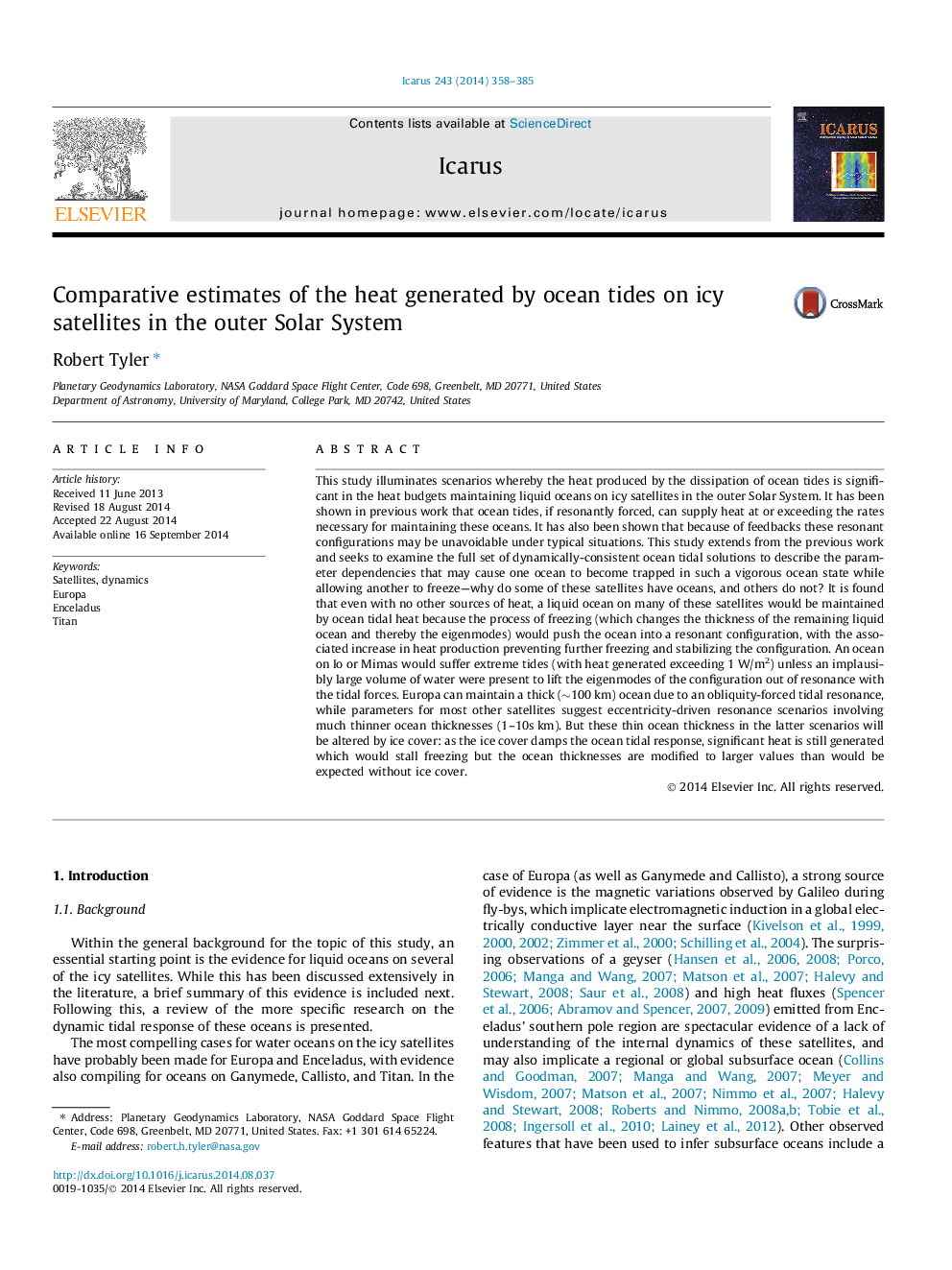| کد مقاله | کد نشریه | سال انتشار | مقاله انگلیسی | نسخه تمام متن |
|---|---|---|---|---|
| 1773105 | 1523547 | 2014 | 28 صفحه PDF | دانلود رایگان |
عنوان انگلیسی مقاله ISI
Comparative estimates of the heat generated by ocean tides on icy satellites in the outer Solar System
ترجمه فارسی عنوان
برآورد مقایسه ای از گرما تولید شده توسط جزر و مد اقیانوس بر روی ماهواره های یخی در سیستم خورشیدی بیرونی
دانلود مقاله + سفارش ترجمه
دانلود مقاله ISI انگلیسی
رایگان برای ایرانیان
کلمات کلیدی
ماهواره ها، دینامیک، اروپا، انسلادوس، تیتان،
موضوعات مرتبط
مهندسی و علوم پایه
علوم زمین و سیارات
علوم فضا و نجوم
چکیده انگلیسی
This study illuminates scenarios whereby the heat produced by the dissipation of ocean tides is significant in the heat budgets maintaining liquid oceans on icy satellites in the outer Solar System. It has been shown in previous work that ocean tides, if resonantly forced, can supply heat at or exceeding the rates necessary for maintaining these oceans. It has also been shown that because of feedbacks these resonant configurations may be unavoidable under typical situations. This study extends from the previous work and seeks to examine the full set of dynamically-consistent ocean tidal solutions to describe the parameter dependencies that may cause one ocean to become trapped in such a vigorous ocean state while allowing another to freeze-why do some of these satellites have oceans, and others do not? It is found that even with no other sources of heat, a liquid ocean on many of these satellites would be maintained by ocean tidal heat because the process of freezing (which changes the thickness of the remaining liquid ocean and thereby the eigenmodes) would push the ocean into a resonant configuration, with the associated increase in heat production preventing further freezing and stabilizing the configuration. An ocean on Io or Mimas would suffer extreme tides (with heat generated exceeding 1 W/m2) unless an implausibly large volume of water were present to lift the eigenmodes of the configuration out of resonance with the tidal forces. Europa can maintain a thick (â¼100 km) ocean due to an obliquity-forced tidal resonance, while parameters for most other satellites suggest eccentricity-driven resonance scenarios involving much thinner ocean thicknesses (1-10s km). But these thin ocean thickness in the latter scenarios will be altered by ice cover: as the ice cover damps the ocean tidal response, significant heat is still generated which would stall freezing but the ocean thicknesses are modified to larger values than would be expected without ice cover.
ناشر
Database: Elsevier - ScienceDirect (ساینس دایرکت)
Journal: Icarus - Volume 243, 15 November 2014, Pages 358-385
Journal: Icarus - Volume 243, 15 November 2014, Pages 358-385
نویسندگان
Robert Tyler,
